JournalismPakistan.com | Published December 19, 2012
Join our WhatsApp channel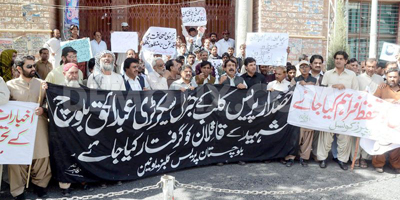
NEW YORK: Pakistan, the deadliest place for journalists in 2010 and 2011, dropped two notches this year, but the number of fatalities held steady at seven, the Committee to Protect Journalists (CPJ) found in its yearly analysis.
Four of those killings took place in Balochistan, the country’s poorest region and a scene of protracted violence between separatists, anti-separatists, various tribes and ethnic groups, Pakistani security forces and intelligence agencies, and groups aligned with the Taliban.
Among the victims was Abdul Haq Baloch, a correspondent for ARY Television, who was shot in September as he was leaving the Khuzdar Press Club, where he served as secretary-general. The authorities have held no one accountable in the killing, which is the near-universal result in media murders in both the region and across the nation.
“The fact that journalists are targeted so frequently in Balochistan has to do with the nationalist movement,” said Malik Siraj Akbar, founder and editor of The Baloch Hal and a native of Balochistan who now lives in the United States.
“There is a revolt across the entire province of Balochistan against the government. As one journalist gets killed in Khuzdar, and the government takes no action, it promotes a culture of impunity and emboldens the targeting of journalists elsewhere.”
The CPJ said the number of journalists killed in the line of duty increased sharply in 2012, as the war in Syria, a record number of shootings in Somalia, continued violence in Pakistan, and a worrying increase in Brazilian murders contributed to a 42 percent increase in deaths from the previous year.
Internet journalists were hit harder than ever, while the proportion of freelancers was again higher than the historical average.
With 67 journalists killed in direct relation to their work by mid-December, 2012 is on track to become one of the deadliest years since CPJ began keeping detailed records in 1992.
The worst year on record for journalist killings was 2009, when 74 individuals were confirmed dead because of their work—nearly half of them slain in a massacre in Maguindanao province, Philippines.
CPJ is investigating the deaths of 30 more journalists in 2012 to establish whether they were work-related.
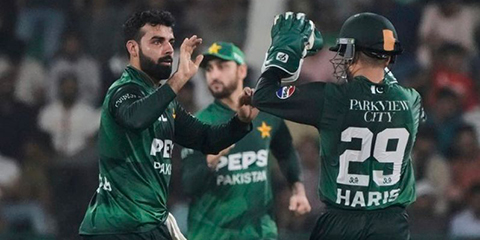
June 11, 2025: Pakistan celebrated a narrow win over Bangladesh, but beneath the jubilation lies a deeper crisis—from sidelined veterans to a collapsing domestic structure—signaling an urgent need for cricket reform.
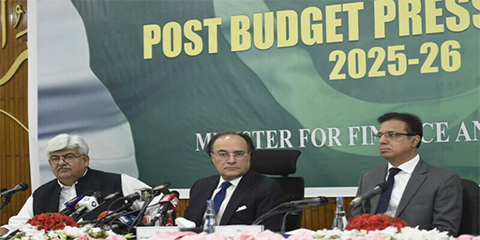
June 11, 2025: Journalists walked out of the post-budget press conference in Islamabad to protest the absence of a technical briefing and the government's dismissive behavior, calling it unacceptable and intolerable.
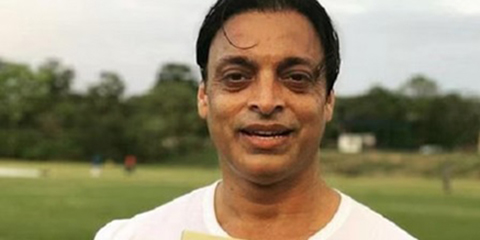
May 31, 2025: Dr. Nauman Niaz has issued a defamation notice to Shoaib Akhtar over derogatory remarks made during a recent broadcast, reigniting a longstanding media feud between the two prominent figures in Pakistan.

May 30, 2025: The Human Rights Commission of Pakistan has demanded the full repeal of PECA, citing its vague language, coercive powers, and threats to free speech and digital rights in Pakistan.
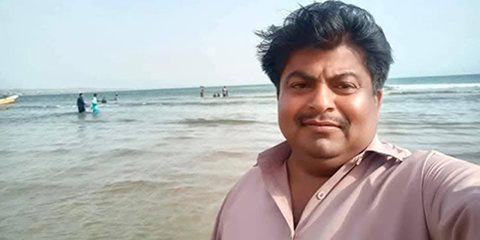
May 30, 2025: The Pakistan Federal Union of Journalists (PFUJ) has condemned the murder of journalist Syed Mohammed Shah in Jacobabad, calling for urgent justice and improved safety for media professionals in Sindh.

May 26, 2025: In Rawalpindi, police allegedly side with Jang Group to block 66 reinstated employees from resuming work despite court orders, drawing sharp criticism from unions and press freedom advocates.

May 25, 2025: PFUJ condemns the Jang Group's decision to dismiss over 80 employees in Rawalpindi, calling it an 'economic massacre.' The union warns of nationwide protests if workers are not reinstated.
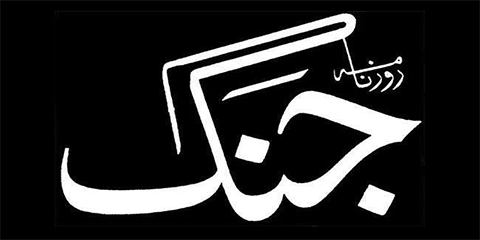
May 25, 2025: Daily Jang Rawalpindi has terminated over 80 employees, including female staff, despite multiple court rulings in their favor—raising concerns over labor rights violations and misuse of authority in Pakistani media.
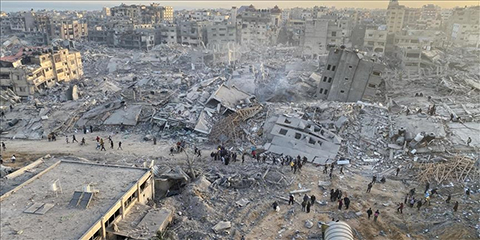
May 19, 2025 PJS reports 219 Palestinian journalists killed in Israeli attacks since October 7, with 30 women among the victims. Over 430 were injured and 685 family members were killed. Read more on the systematic targeting of media in Gaza.

May 15, 2025 Discover the legacy of Samiullah Khan, Pakistan’s legendary "Flying Horse," whose breathtaking speed and artistry redefined hockey. From Olympic glory to World Cup triumphs, his story is one of myth, movement, and magic.
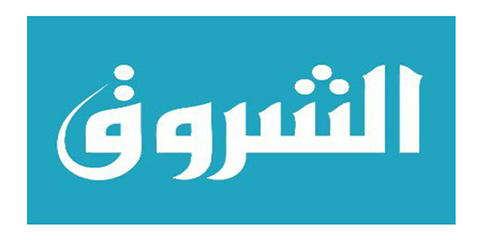
May 04, 2025 Algerian authorities suspend Echorouk News TV for 10 days after it used a racist slur against African migrants. ANIRA demands an apology, calling it a violation of human dignity.

May 04, 2025 NCHR and MMfD launch a journalism fellowship to train reporters on digital rights & gender inclusion in Pakistan. Supported by UNESCO, this initiative aims to bridge the gender digital divide. Apply by May 15, 2025!
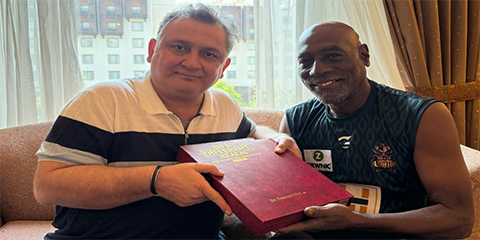
April 23, 2025 Discover Dr. Nauman Niaz’s In A Different Realm: Story of Quadruple & Triple Centuries 1876–2025, a profound exploration of cricket's most monumental innings, blending historical analysis with poetic narrative.